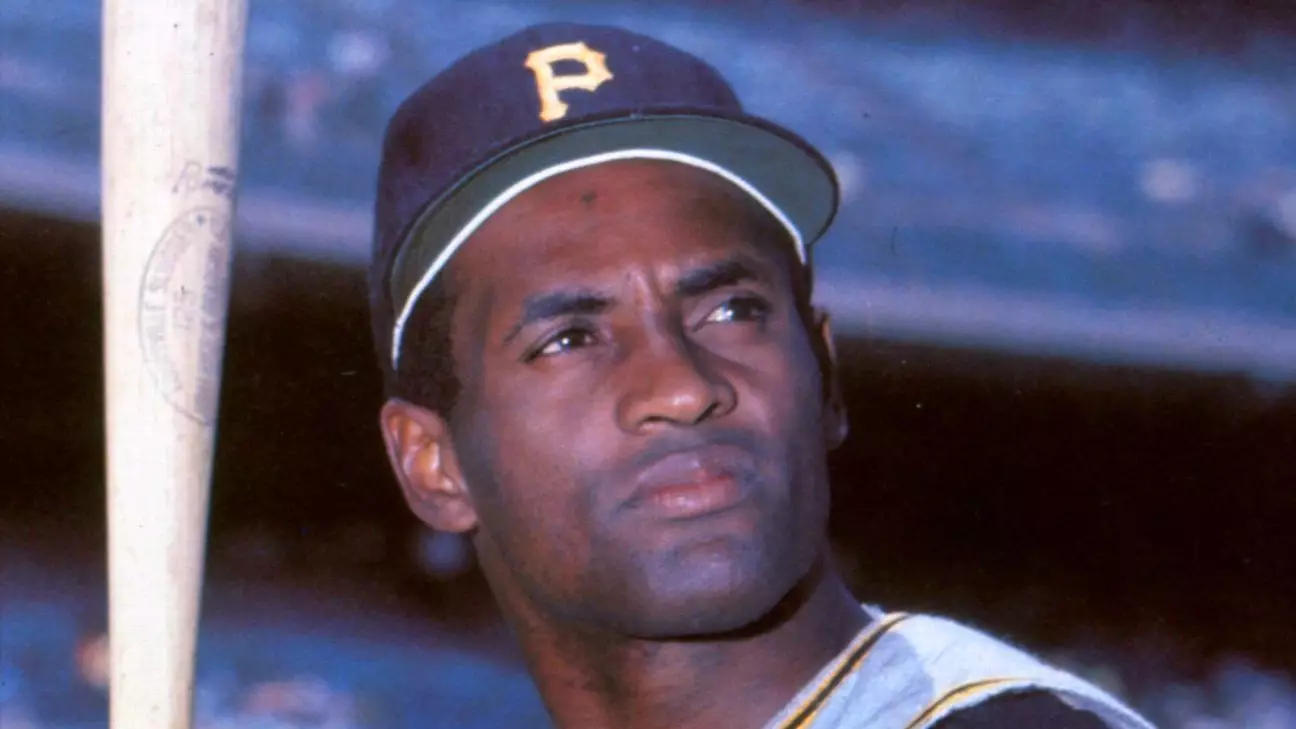The Pittsburgh Pirates recently faced a significant backlash following their decision to remove a tribute sign dedicated to Roberto Clemente from PNC Park’s right-field wall. This decision is not simply a matter of a physical sign being replaced; it symbolizes a deeper issue of respect for legacy and the continuation of a family’s history within the realm of sports. Conceived as a temporary installation, the sign displayed Clemente’s name and iconic number 21, a gesture that honored the memory of one of baseball’s most revered figures. In its place, an advertisement for Surfside, an alcoholic drink, now dominates the space. This move has stirred emotions, raising questions about the Pirates’ regard for their storied past and their icons.
Clemente, who devoted his entire baseball career to the Pirates from 1955 to 1972, is not merely a historical figure for fans of the team; he embodies a legacy that transcends the sport. His achievements include 15 All-Star selections, 12 Gold Glove awards, and a National League MVP title in 1966, but it is his humanitarian efforts—especially his tragic death while aiding earthquake victims in Nicaragua—that have immortalized him in the hearts of many.
The Family’s Voice
Roberto Clemente Jr., the son of the legendary player, expressed the family’s dissatisfaction in a public statement, lamenting that the team made such a significant decision without prior consultation or communication. This lack of engagement underscores a pervasive issue: the disconnect between organizations and the sentimental value they wield over players’ legacies. The family clearly articulated their feelings about this matter, highlighting that the removal of the sign is not just about a physical space but reflects a deeper misunderstanding of their father’s significance to fans and the broader community.
Clemente Jr.’s reaction reveals emotional wounds that resonate beyond the confines of a baseball park. Although the Pirates have publicly acknowledged their oversight in failing to include the Clemente family in their decision-making process, this acknowledgment feels hollow without meaningful action to rectify it.
The Outpouring of Support
The immediate backlash from fans, both locally and nationally, further emphasizes the deep-rooted affinity for Clemente’s legacy. The overwhelming support has reiterated that many view him not just as an athlete but as a symbol of hope, compassion, and resolve. The exuberance of fans showcases how intertwined Clemente’s identity is with the fare of the Pirates franchise. People are not simply mourning the loss of a sign but are standing up for what Clemente represents—a figure of integrity whose influence extends beyond baseball.
This reaction calls into question how sports organizations like the Pirates can better manage historical legacies. When a substantial part of a community’s identity is tied to a figure like Clemente, any perceived slight against that memory runs the risk of alienating a passionate fanbase. Respect, acknowledgment, and inclusivity must be prioritized, especially when those legacies are so deeply embedded in the community’s cultural fabric.
A Path Forward
In the aftermath of this incident, it becomes apparent that both the Pirates and the Clemente family have an opportunity to bridge their relationship. The Pirates expressed a commitment to honoring Clemente’s contributions daily, but practicality must back this claim. Moving forward, there is a crucial need for a collaborative approach that respects historical significance while recognizing the voices of those most closely related to the legacy.
Roberto Clemente Jr. stated a desire for sincere partnerships, which suggests that what is needed is not just temporary decorations honoring his father but genuine conversations about how best to celebrate and preserve his impact within the sporting world. Such communication could lead to a revitalization of goodwill and mutual respect, ensuring that future tributes reflect the community’s heart and honor the legacies that shaped it.
In an era where the line between commercialism and cultural tribute often becomes blurred, the need to balance respect for heritage with contemporary motivations becomes more pressing. Organizations like the Pirates must tread carefully, as the legacies they cherish hold meaning far beyond the diamond. Only through a collective acknowledgement of this fact can they better honor the icons that have shaped their identities.


Leave a Reply